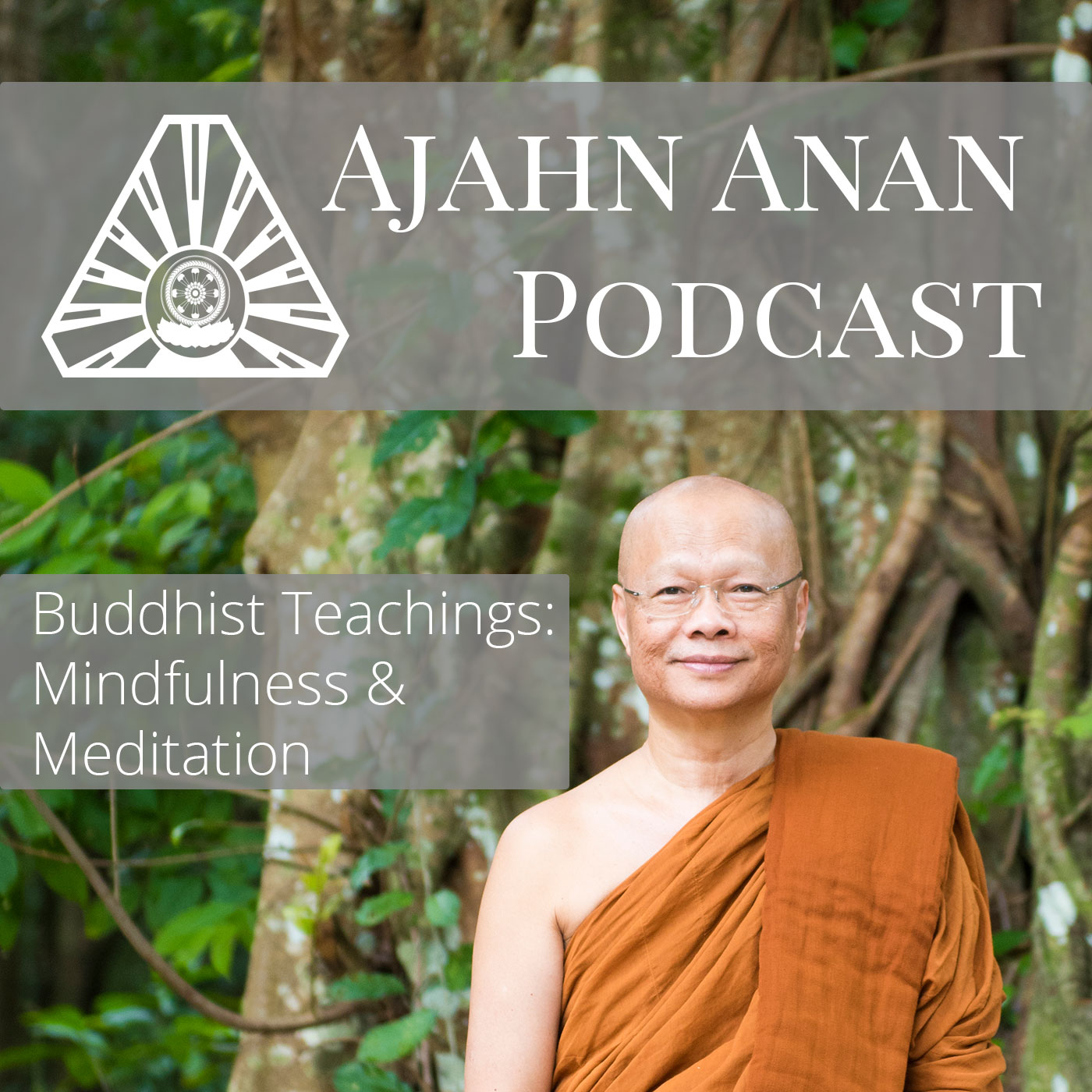
In this talk Ajahn Anan teaches us about the nature of the human world–a place of both ease and strife stuck in the middle of the realms. He also talks on what lies above and below us in the cosmos.
If you would like to join Ajahn Anan and the Wat Marp Jan Community online for daily chanting, meditation, and a translated Dhamma talk every day from 7-9 p.m. Indochina Time (Bangkok, GMT + 7), you can send an email to wmjdhamma@gmail.com for the link.
Given on May 20th, 2020

In this videoconference talk from 24 July 2020, Ajahn Anan discusses using our time well.
One can read talk transcripts with Q and A here: https://watmarpjan.org/en/dhamma-reflections/

A translation of a recorded talk given 15 or so years back. Here Luang Por Anan describes the dangers coming from the belief that we have attained something. If we think we’re a Sotapanna–that’s not sure! After all, where is a Sotapanna to be found? In the body? In feelings? In perception, thoughts, or sense-consciousness?
If you would like to join Ajahn Anan and the Wat Marp Jan Community online for daily chanting, meditation, and a translated Dhamma talk every day from 7-9 p.m. Indochina Time (Bangkok, GMT + 7), you can send an email to wmjdhamma@gmail.com for the link.

In this videoconference talk from 18 August 2017, Ajahn Anan discusses the love of a mother and a disciple of the Buddha, Venerable Angulimala.
Note: One can read this talk transcript with Q and A here: https://watmarpjan.org/en/a-mothers-love-and-the-story-of-venerable-angulimala/

A talk about Asalha Puja, given around the time of Asalha Puja, in 2017. This is also the time that the monastic Sangha typically enters their yearly rains retreat.

Ajahn Anan teaches us to understand our experiences in line with truth, and not in terms of a preconceived notion of self. This path of understanding and insight leads us to freedom and real peace.
If you would like to join Ajahn Anan and the Wat Marp Jan Community online for daily chanting, meditation, and a translated Dhamma talk every day from 7-9 p.m. Indochina Time (Bangkok, GMT + 7), you can send an email to wmjdhamma@gmail.com for the link.

In this talk, Ajahn Anan explains how concentration and wisdom practices, or samatha and vipassana, support and strengthen one another.
If you would like to join Ajahn Anan and the Wat Marp Jan Community online for daily chanting, meditation, and a translated Dhamma talk every day from 7-9 p.m. Indochina Time (Bangkok, GMT + 7), you can send an email to wmjdhamma@gmail.com for the link.

In this videoconference talk from 25 August 2017, Ajahn Anan discusses the right hand disciple of the Buddha, foremost in wisdom, Venerable Sariputta Maha Thera.
Note: One can read this talk’s transcript with Q and A here: https://watmarpjan.org/en/venerable-sariputta-maha-thera/

In this talk, Ajahn Anan speaks about how to strengthen mindfulness through practice until one can see reality in terms of nature and the four elements rather than the proliferation of the deluded mind.
If you would like to join Ajahn Anan and the Wat Marp Jan Community online for daily chanting, meditation, and a translated Dhamma talk every day from 7-9 p.m. Indochina Time (Bangkok, GMT + 7), you can send an email to wmjdhamma@gmail.com for the link.

In this videoconference talk from 10 July 2020, Ajahn Anan discusses motivation. The story of the great disciple Venerable Yasa Thera is highlighted.
Note: One can read Dhamma talk transcripts, with Q and A, here: https://watmarpjan.org/en/dhamma-reflections/reflections-archive/
